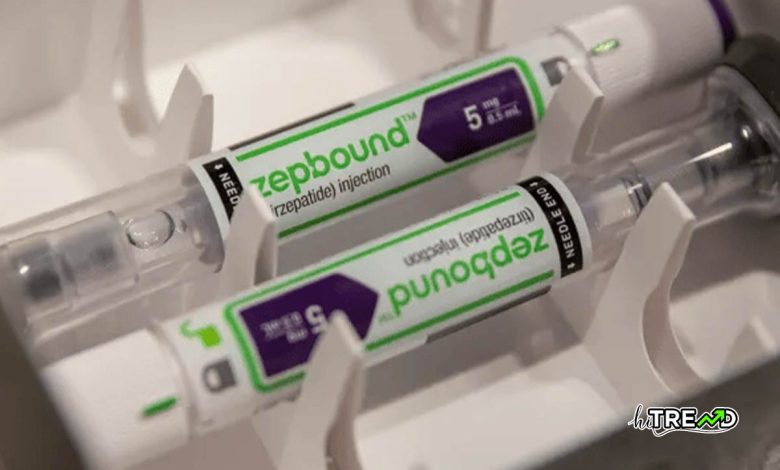Eli Lilly’s weight loss drug Zepbound cuts heart failure risks in late-stage study

s weight loss drug Zepbound showed benefits in patients with a common type of heart failure and obesity, according to late-stage trial data the company released Thursday.Eli Lilly’s weight loss drug Zepbound cuts heart failure risks in late-stage study
The findings add to mounting evidence that Zepbound and other popular GLP-1 drugs have health benefits beyond promoting weight loss and regulating blood sugar, which could potentially lead to broader insurance coverage for those treatments.
Eli Lilly said it plans to submit the results from the phase three trial to regulators in the U.S. and other agencies starting later this year.
You can read more Business articles
Shares of Eli Lilly rose more than 3% in morning trading Thursday.
Patients who took Zepbound were 38% less likely to be hospitalized or die because of heart complications, and less likely to need to increase their heart failure medication compared with those who received a placebo, the study found. Zepbound also significantly improved heart failure symptoms and physical limitations, Eli Lilly said in a release.
For a median of two years, the trial followed more than 700 patients who have heart failure with preserved ejection fraction, or HFpEF, and obesity. Some patients also had diabetes.
HFpEF refers to when the heart is unable to pump enough blood to meet the body’s needs. Eli Lilly said the condition is linked to a “high burden” of symptoms and physical limitations that affect a patient’s daily life, including fatigue, shortness of breath and a lower ability to exercise, among other issues.
Roughly 6.7 million adults ages 20 and above have heart failure in the U.S., according to the latest estimates from the Centers for Disease Control and Prevention.
Eli Lilly estimates that HFpEF accounts for almost half of all heart failure cases, and in the U.S., nearly 60% of patients impacted also have obesity.
The safety data on Zepbound was consistent with previous trials studying the drug. The most common side effects were gastrointestinal, such as nausea and diarrhea, and mild to moderate in severity.
Eli Lilly will present the data at an upcoming medical meeting and submit it to a peer-reviewed journal.
The pharmaceutical giant’s main rival in the GLP-1 market, Novo Nordisk, is already one step ahead.
Novo Nordisk earlier this year submitted an application for the use of its weight loss drug Wegovy in treating patients with HFpEF. The Food and Drug Administration in March also greenlit Wegovy for slashing the risk of serious heart complications. Eli Lilly’s weight loss drug Zepbound cuts heart failure risks in late-stage study
Meanwhile, both Novo Nordisk and Eli Lilly have been studying their respective drugs in patients with chronic kidney disease and fatty liver disease, among other conditions. GLP-1s work by mimicking hormones produced in the gut to suppress a person’s appetite and regulate their blood sugar.
But Zepbound targets both the GLP-1 and GIP hormone receptors, while Wegovy targets just GLP-1.
Follow HiTrend on X





